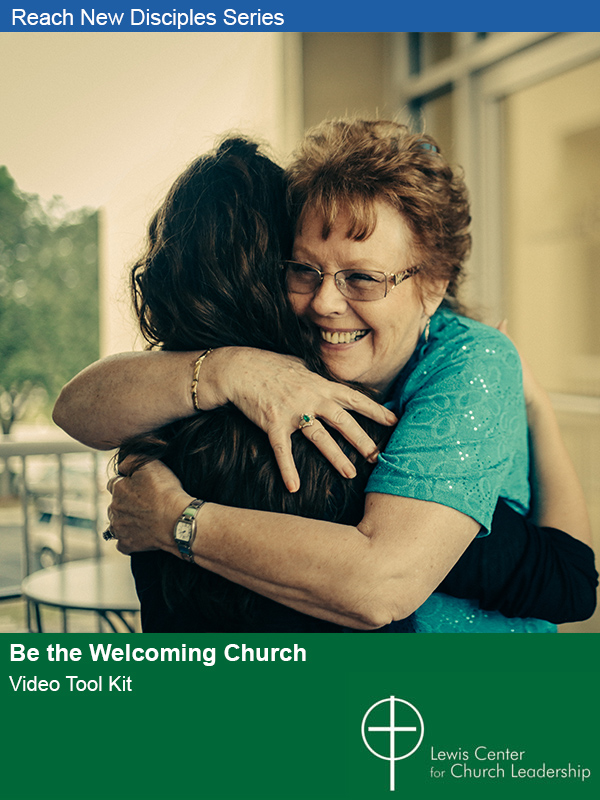What does it really mean to be a missional church? Lewis Center Director Doug Powe says it’s more than a catchphrase for activities aimed at congregational renewal. Congregations that are truly missional are not motivated by their internal institutional imperatives. They make a difference in the lives of others by focusing beyond themselves and offering others a glimpse of what it means to live in God’s presence.
The word missional is tossed around a lot in leadership circles. Typically, the goal is to develop stronger, more vital congregations. Certainly, this is a worthwhile goal, but is being missional more than a catchphrase for congregational renewal?
For example, a congregation may be supporting organizations financially and encouraging individuals to come to their building for the weekly potluck, but this falls short of being missional. To go a step further, a congregation may even be involved in ministry outside of the church, but does it in a manner where relationships are built only with those they already know. This also falls short of being missional. In both instances congregations have picked up aspects of what it means to be missional, but are still treating it like a catchphrase.
Missional congregations trust that if they are following God’s lead, then God will inspire some to join with them in making a difference. The goal is sharing why a relationship with God is central and not making one’s congregation the centerpiece.
Being missional requires participation in God’s work of transformation in a manner that alters the typical DNA of a congregation. The typical DNA of a congregation is doing ministry from a place of comfort and in ways that are comfortable. For some congregations, this means inviting others to their church or doing ministry in a controlled environment. Missional congregations are attempting to be genetically different in the following ways.
1. Disrupting the tendency to focus inwardly
Missional congregations truly seek to be outwardly focused and to disrupt the tendency to focus on themselves. This is a challenge, because often when congregations talk about being outwardly focused, it is with the intent of making a difference inside the congregation. I am not saying that those inside the church do not matter and that the only concern a congregation should have is for outsiders. But there is a difference between a ministry that is outwardly focused and one that only appears outwardly focused. To disrupt the tendency to do the latter, a congregation must be intentional about the purpose of the ministry.
Is the purpose to make a difference in the lives of others, under God’s leading? Or is the purpose to help others as a means of promoting the work of the congregation? These two questions seem very similar and appear to have the same end goal. The difference is that seeking to make a difference in the lives of others under God’s leading avoids pre-determined outcomes that focus on congregational membership. Helping others to promote one’s congregation usually has the end goal of focusing on the life of the congregation. This is not a bad thing, but it does create a situation in which an individual who does not join or actively participate in the congregation will be perceived negatively. Missional congregations trust that if they are following God’s lead, then God will inspire some to join with them in making a difference. The goal is to share why a relationship with God is central, not to make one’s congregation the centerpiece.
2. A glimpse of heaven
In Matthew’s version of the Lord’s prayer we say, “your will be done, on earth as it is in heaven.” Missional congregations give others a glimpse of heaven. The way in which a missional congregation lives out what it means to be disciples of Jesus helps individuals to better understand what it truly means to exist in God’s presence.
Let’s be honest. This is no easy task. It means being able to point others to God in the midst of conflict, pastoral transitions, financial challenges, and congregational decline. Missional congregations focus on helping others to experience and abide in God’s love. This may be done by making a commitment to spend time with those in nursing homes, singing hymns and letting them know they still matter. It may be taking the time to teach songs to elementary school children who have no music program. The key is sharing a glimpse of heaven with others so that they can truly experience God. It is a sharing that demonstrates and articulates God’s love for another.
The truth is, we do need more missional congregations. These congregations have to be more than a catchphrase. They have to disrupt tendencies toward being inwardly focused and give others a glimpse of heaven. When we truly live out what it means to be a missional congregation, we make a difference in the lives of others and follow Jesus’ call to be disciples.
Related Resources
- Organizing a Missional COMMUNITY by Doug Powe and Hal Knight
- Roadblocks to God’s Future by Alan Roxburgh







